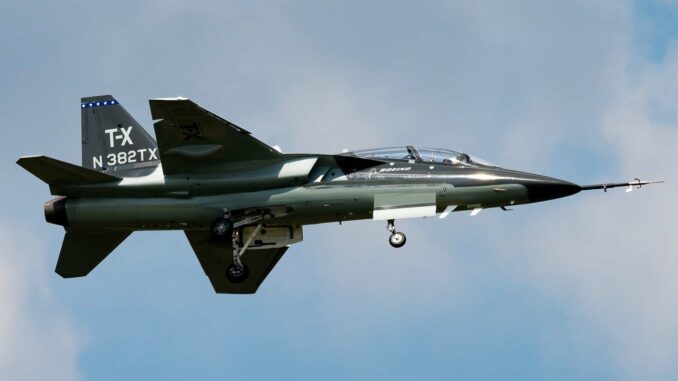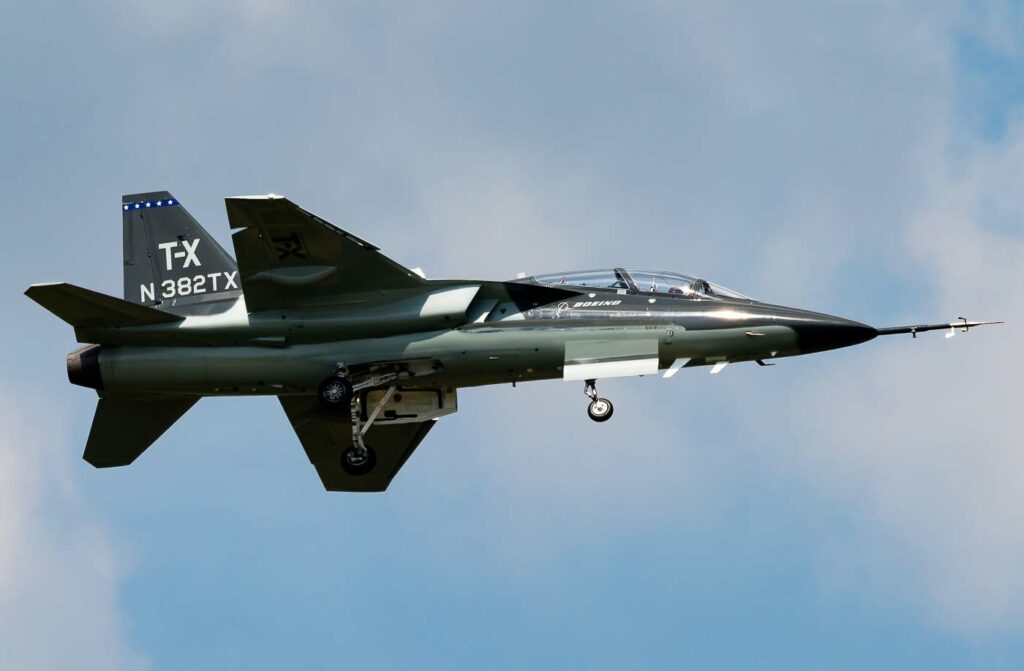
Boeing postpones delivery of T-7A Red Hawk trainer jets to the US Air Force due to parts quality issues, impacting the production schedule.
Quality challenges and delays for the T-7A Red Hawk
Boeing has announced a significant delay in the delivery of the next T-7A Red Hawk test aircraft to the US Air Force, citing quality issues with certain parts as the main cause. Originally scheduled for late 2023 and early 2024, delivery of the fourth and fifth test jets has now been pushed back several months, with direct implications for the start of Low Initial Rate Production (LRIP) scheduled for mid-2024. The delays are attributed to supply chain problems and the need to send certain parts back to their manufacturers for repair. Evelyn Moore, Boeing’s Vice President in charge of the T-7 program, underlined the company’s commitment to safety and quality, despite these setbacks.
Boeing’s $9.2 billion contract with the US Air Force for the T-7A Red Hawk includes delivery of 351 jets by 2034 to replace the aging T-38 fleet. The T-7 is designed to simulate fifth-generation fighter jets such as the F-35, facilitating the training of new pilots. However, the current delays raise questions about meeting contractual deadlines and the implications for the development, testing and production phases of the T-7.

Implications and challenges of the T-7 program delay
The delays announced by Boeing in the T-7A Red Hawk program have both positive and negative consequences for the US Air Force and the defense industry.
On the positive side, Boeing’s focus on quality and safety, despite the delays, ensures that delivered aircraft will meet the highest standards, potentially reducing the risk of future operational problems. In addition, this situation offers Boeing and its suppliers the opportunity to improve their quality control processes and strengthen collaboration within the supply chain.
However, the negative aspects are significant. Delays in the delivery and production schedule can lead to additional costs for Boeing and the US Air Force, affect operational readiness and delay T-38 replacement. In addition, the overlapping development, test and production phases increase the risk of increased costs and further delays if problems are discovered during testing that would require modifications in production, as highlighted by the Government Accountability Office in its 2023 report.
These delays highlight the challenges inherent in managing complex weapons programs, where supply chain and parts quality issues can have a significant impact on delivery and production schedules. They also underline the importance of rigorous planning and project management to anticipate and mitigate risks.
The delays in Boeing’s T-7A Red Hawk program, while unfavorable, offer a valuable opportunity to improve the quality and safety of future training jets. However, they underline the need for effective project management and collaboration to overcome supply chain challenges and ensure the long-term success of the program.
War Wings Daily is an independant magazine.